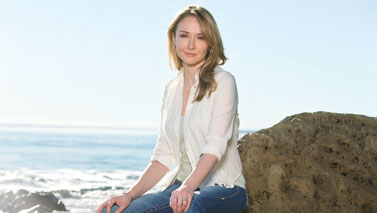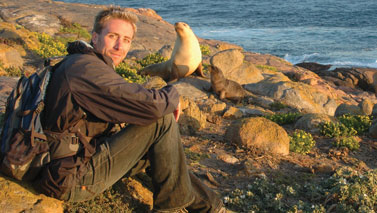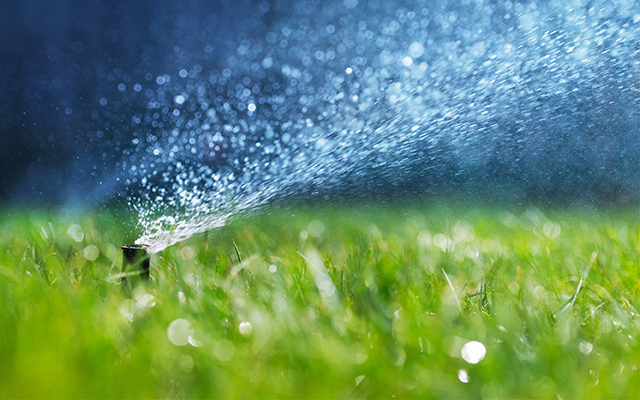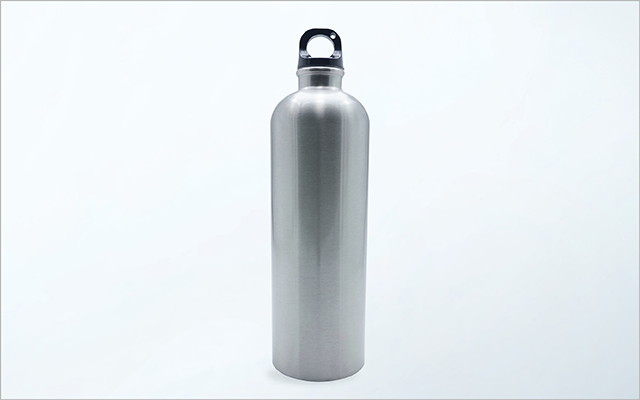Ask Alexandra Cousteau what one thing connects all people, and she doesn’t miss a beat: “Water — whether you live in America or Turkey, are Baptist or Hindu, it’s the one thing that none of us can live without. We have to work together to protect it, despite our differences.”
Cousteau’s passion for conserving our most precious natural resource stems, no doubt, from her countless explorations in the depths of the oceans — many as a child with her grandfather, the late, legendary ocean explorer Jacques-Yves Cousteau, and her late father, Philippe Cousteau Sr., a filmmaker, explorer and environmentalist. Yet it’s the people she’s met in her travels who have inspired this third-generation adventurer’s current mission: to raise awareness about critical water issues — to make “blue” as popular as “green” — and to empower people to protect our global water supply and work together toward solutions.
Last year, Cousteau, 32, founded Blue Legacy, a Washington, D.C.–based nonprofit dedicated to exploring how humans relate to our water-based planet. Through projects like the recent Expedition: Blue Planet, she’s showing how individuals and communities contribute to an interdependent global water system, and how they can work together to protect it. In This Blue Planet, her first book to be published next March, Cousteau will share the stories from her 100-day expedition — which took her from the Ganges River in India to the Okavango Delta in Botswana to the Sham Rumi Reef off the coast of Sudan.
Honored as a member of National Geographic’s “Emerging Explorers” Class of 2008 for her lifelong dedication to environmental issues, Cousteau also serves on the boards of EarthEcho International, an environmental education organization she cofounded in 2000 with her brother, Philippe Cousteau Jr., and the Global Water Challenge, an international coalition working to deliver safe drinking water and sanitation in developing countries. As a contributor to CNN’s 2008 Principle Voices series, she joined some of the world’s leading experts to discuss climate change and other environmental issues.
But while Cousteau, who earned a political science degree from Georgetown University, is an expert in her own right, she’s more interested in being a catalyst for creating environmental awareness and change. “There’s nothing more important than being a behavioral role model in your community,” she insists.
And her community is global. Cousteau spreads her conservation message to millions through partnerships with broadcast outlets like CNN and the National Geographic Channel, Web sites like Grist (www.grist.org), and social media networks like Facebook and Twitter. During Expedition: Blue Planet, for instance, Cousteau and her team shared their findings via blogs, Webcasts and photo galleries. “The whole idea,” she explains, “is to have people experience our journey with us on a daily basis and to engage them in becoming citizen scientists.”
These media channels are essential for generating excitement, she notes, but they shouldn’t replace firsthand nature experiences. “To ask people to protect something they’ve never personally experienced is challenging because people protect what they love,” she says. “When they realize that environmental issues like water quality exist in their own communities — in their own backyards — and get out and see it for themselves, then it becomes something they’re truly interested in and want to learn more about.”
That understanding often leads to behavior shifts that are a boon for the environment, Cousteau says. “When people expand their horizons, they often become more curious about what else they can be doing.” For some, it may mean getting involved in local politics so they can help make environmental decisions at the community level; for others it may simply be remembering to turn off the water while brushing their teeth or replacing toxic household cleaners with natural, biodegradable alternatives.
The latter is especially important when it comes to water quality.
“Urban runoff is now greater than industrial runoff,” Cousteau says. “That’s why we have to keep in mind that we are upstream and downstream from everyone, and that what we put in our water will eventually reach others.”
As determined as she is to raise public consciousness, Cousteau knows that, to do it effectively, she has to first take care of herself. “I’m really careful about drinking lots of water, eating well, getting plenty of sleep and managing my stress, especially when I’m traveling,” she explains. To unwind, Cousteau enjoys scuba diving, horseback riding and rowing — “It’s like moving meditation,” she says — and spending quality time with friends and family.
It’s on the road, however, that she feels most at peace. “To this day, whenever I’m in the field working on a project, I feel more at home than anywhere else. It’s the excitement of discovery — it never gets old.”
Jamie Martin is an Experience Life senior editor.
Go behind the scenes at our cover shoot with Alexandra Cousteau at experiencelife.lifetime.life/videos.




This Post Has 0 Comments